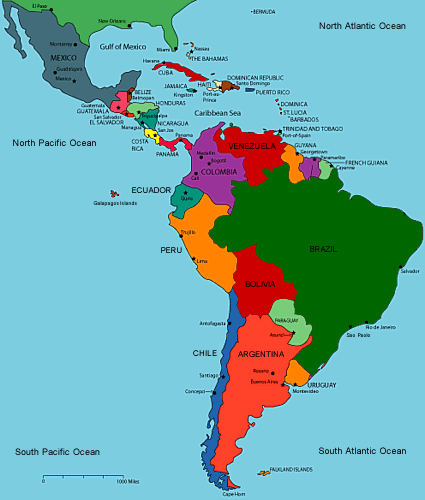One of the first things I noticed upon entering Mexico was the number of soldiers and checkpoints on the countries main roads. I guess I wasn't all that surprised when I was by the border towns, but became more concerned the deeper I went into the country. The soldiers are posted on main roads under the premise of combating drug-trafficking and the drug-cartels that run rampant in Mexico, specifically in the states on Michoacan and Sinaloa. So why am I seeing checkpoints in the state of Guanajuato, Mexico and Queretaro, which are not know as heavy drug trafficking states? This last week the US congress voted on the Merida Initiative as part of the Iraqi Supplemental Bill. The Merida Initiative, also known as Plan Mexico, would give Mexico $500 million in aid to combat drug-trafficking and $50 million to Central American countries for the same purpose. Drug-trafficking violence is a HUGE problem in Mexico, with the drug-cartels brutally killing civilians, soldiers, police and each other. Up until the month of April there had been, on average, at least 3 drug-cartel related murders per day in Ciudad Juarez, since the beggining of the year. One of the cities with the highest drug-related murders in the republic. 45 mins from where I was staying, by the border of Michoacan and Guanajuato, a police officer and a woman were killed execution style in broad daylight, Mexican police chiefs have been killed left and right, with three just recently asking the US gov't for asylum. I've seen soldiers walking the streets of mexican cities with AK-47s and Uzis calmly tucked under their arms, driving in hummers and army trucks with as many as ten soldiers in the cab. Mexico is becoming a military state, and all in the name of fighting a drug war for the US. Mexico isn't known as a drug consumptive state, yes people use drugs in Mexico, but the demand isn't as great as it is in the US, hence Mexicos role as a supplier. What the Merida Initiative fails to do is attempt to curb US consumption and address the issues of need that make drug-trafficking a practical means of income. Again, I'm brought back to the disparities in wealth that exist in Mexico, in the third world and in urban areas of blight. Areas where heavy drug-trafficking exists. These same disparities in wealth, resources, education, food, opportunity, running water, etc, are what drive people to immigrating or seeing drug-dealing as a viable form of income. If these gaps in wealth were lessened, people would be less inclined to turn to drug-trafficking for the sake of survival. I believe that if people are given the option to make a positive choice, that most of the time, they will make that choice. If people are given positive resources and opportunities, they will take them. We live in a society that creates situations of need, a society that creates negative opportunities with high-risk as a last resort for survival: drug trafficking, immigration, prostitution, human-trafficking, etc. Then we wonder why people act the way they do. Necessity. What the Merida Initiative will accomplish is to further militarize Mexico. The Mexican army, along with the Mexican Police force, is known as being one of the most corrupt, brutal organizations in the world. Their behavior is evident in the militarys handling of the massacre of Zapatistas at San Salvador Atenco and of the Oaxacan teachers strike in Oaxaca, the latter which ended the life of american journalist Brad Will. As for the police, just ask any tourist or Mexican native. Even tour guide books like Let's Go and Lonely Planet bluntly advice NOT asking police for help in Mexico, unless it is a complete neccesity. Another effect of the Merida Initative will be its aid in curbing political dissent in Mexico. Militarized states aren't conducive to protests or civil disobedience. It is in the United States best interest to help keep Mexico "stable." Keeping Mexico stable was the main reason why the US gov't intervened in Nicaragua. If Nicaragua could successfully create a populous gov't through revolution, what was to stop Mexico? A country with comparable levels of poverty. Examples need to be made. So again, how is the Merida Initiative good for Mexico? It's not. What is good for Mexico and humanity is upholding systems that eliminate extreme poverty and need. It can happen.
book: Here's to you, Jesusa!-Elena Poniatowska

